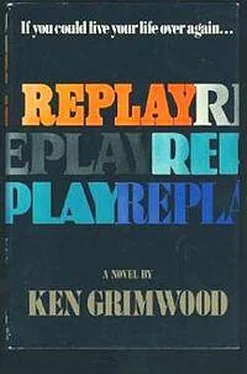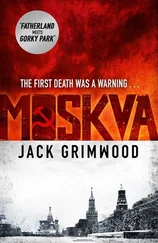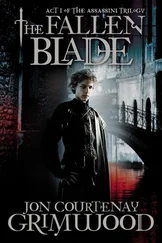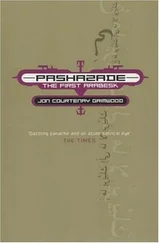The burly attendant nodded, took a seat at the table beneath the Tiffany lamp, and began working on the jigsaw puzzle as the doctor left the room.
"Have a seat," Stuart said, indicating the chairs by the fireplace.
"God," Jeff said with immediate sympathy, "how awful this must be for you."
Stuart frowned. "It’s not so bad. Much, much better than some of the other places."
"I don’t mean the place itself, I mean the fact that this has happened to you at all. We’ll do everything we can to get you out of here as soon as possible. I have an excellent attorney in New York; I’ll see to it that he’s on a plane out here tomorrow morning. He can straighten this out, I know."
"I appreciate your concern. It’ll take awhile, though."
"How did you—"
"Tea and cake," Melinda announced brightly, coming through the door with a silver tray.
"Thank you, Melinda," Stuart said. "That’s very sweet of you. I’d like you to meet some friends of mine, Jeff and Pamela. They’re from my own time, from the 1980s."
"Oh," the girl said happily, "Stuart’s told me all about the future. About Patty Hearst and the SLA, and what happened in Cambodia, and—"
"Let’s not talk about all that now," Jeff interrupted her, glancing over his shoulder at the attendant, who sat obliviously engrossed in the jigsaw puzzle. "Thanks for the refreshments. Here, I’ll take the tray."
"If you want any more, I’ll be in the front room. It was nice to meet you; can we talk about the future later?"
"Maybe," Jeff said tersely. The girl smiled and left the room. "Jesus, Stuart," Jeff said when she had gone. "You shouldn’t have done that. You shouldn’t have confided in her at all, let alone told her about us. How’s that going to look if she says anything to anybody?"
"No one really pays any attention to what we say in here. Hey, Mike," he called, and the attendant looked over. "Know who’s going to win the World Series three years running, starting in 1972? Oakland."
The attendant nodded blankly, went back to his puzzle.
"See what I mean?" Stuart grinned. "They don’t even listen. When the A’s start winning, he won’t remember I ever told him they would."
"I still don’t think it’s a good idea. It could make our efforts to get you out of here much more difficult."
The pale man shrugged. "That’s neither here nor there." He turned to Pamela. "You made Starsea, didn’t you?"
"Yes," she said with a smile. "It’s nice to know someone remembers it."
"Very, very well. I almost wrote you a letter after I saw that; I knew right away you must be a repeater, and the movie validated a lot of things I’d learned myself. It renewed my sense of purpose."
"Thank you. You mention the things you’ve learned. I wondered—have you … experienced the skew? The accelerating start dates of the replays, or repeats, as you think of them?"
"Yes," Stuart said. "This last one was almost a year late."
"Mine was a year and a half; Jeff’s was only three months. We’ve been thinking that, if we could plot an exact curve between the various starting times, we might be able to predict … how much time we’ll lose on the next cycle. But it would have to be very precise. Have you kept track of—"
"No, I haven’t been able to."
"If we all three compared notes, maybe it would jog your memory; we could at least start to narrow it down."
He shook his head. "It wouldn’t work. The first three times I began repeating, I was unconscious. In a coma."
"What?"
"I had a car accident in 1963—You did start coming back in 1963, didn’t you?" he asked, looking from Pamela to Jeff and back again.
"Yes," Jeff assured him. "Early May."
"Right. Well, that April I’d been in an accident, totaled my car. I was in a coma for eight weeks, and every time I’d wake up, I’d be repeating. I thought the coma had something to do with it, until this time. So I don’t know whether my—what did you call it? The difference in the start dates?"
"The skew."
"I don’t know whether my skew the first three times was a matter of hours or days or weeks. Or if there was any at all." The disappointment in Pamela’s face was evident, even to McCowan. "I’m sorry," he said. "I wish I could be of more help."
"It’s not your fault," she said. "I’m sure that must have been terrible for you, coming to in a hospital that way, and now—"
"It’s all part of the performance; I accept it."
" Performance ? I don’t understand."
Stuart frowned quizzically at her. "You have been in touch with the ship, haven’t you?"
"I don’t know what you mean. What ship?"
"The Antarean ship. Come on, you did Starsea. I’m a repeater, too; you don’t have to play ignorant with me."
"We honestly don’t know what you’re talking about," Jeff told him. "Are you saying you’ve been in touch with the … people, or beings, who are responsible for all this? That they’re extraterrestrials?"
"Of course. My God, I just assumed … Then you haven’t been performing the appeasement?" His already wan face went whiter still.
Jeff and Pamela looked at each other, and at him, in confusion. They’d both considered the possibility that an alien intelligence might somehow be involved in the replays, but had never received the slightest indication that this was in fact the case.
"I’m afraid you’re going to have to explain all this from the beginning," Jeff said.
McCowan glanced at the still-impassive young man, who remained hunched over the jigsaw puzzle in the far corner of the room. He moved his chair closer to Jeff and Pamela, spoke in subdued tones.
"The repeating, or replaying—they don’t care anything about that," he said, jerking his head to indicate the attendant. "It’s the appeasement that gets them upset." He sighed, looked searchingly into Jeff’s eyes. "You really need to hear the whole story? From the start?"
"I grew up in Cincinnati," Stuart McCowan told them. "My father was a construction worker, but he was an alcoholic, so he wasn’t always able to find work. Then, when I was fifteen, he got drunk on a job and let a cable slip. He lost a leg, and after that the only money we had coming in was from my mother—she did piecework for a company that made police uniforms—and what I could pick up in tips as a bag boy at Kroger’s.
"My father always got after me about being so skinny and not very strong physically; he was a big, powerful man himself, had forearms half again as thick as Mike’s, there. After he lost the leg everything got even worse between us. He couldn’t stand the fact that, puny as I was, I was at least whole. I had to carry things for him sometimes, when he couldn’t manage both an armload of packages and his crutches. He hated that. He really got to despise me after a while, and the drinking got worse …
"I left home when I was eighteen; that was in 1954. Went west, out to Seattle. I wasn’t very strong, but my eyes and my hands were steady. I managed to find work at Boeing, learned to machine-tool some of the lighter aircraft parts, trim tabs and such. I met a girl out there, got married, had a couple of kids. It wasn’t so bad.
"Then I had my accident in the spring of '63, the one I told you about. I’d been drinking a little myself, not like my dad used to, but a few beers on the way home from work, and a shot or two once I got home, you know … and I was drunk when I hit that tree. Didn’t come to for eight weeks, and nothing was ever really the same after that. The concussion had screwed up my hand-eye coordination, so I couldn’t hack it at work anymore. It seemed like everything was happening to me just the way it had to my dad. I started drinking more, and yelling at my wife and kids … Finally she just packed up and moved out, took the children with her.
Читать дальше












